SUMMARY
This is AI generated summarization, which may have errors. For context, always refer to the full article.
![[OPINION] The irony of a ‘Ferdinand Marcos Day’](https://www.rappler.com/tachyon/2020/09/marcos-day-september-4-2020.jpg)
We have in our hands a case of national schizophrenia: while every February, the state commemorates the peaceful revolution that ousted a dictator, the House of Representatives recently passed another law that seeks to celebrate the birth of that same dictator. Is it possible to honor the revolution and the dictator it overthrew at the same time?
While many of us see official public holidays as days when we can skip work or receive double pay, state-sponsored holidays are, in general, essential in promoting national identity and memory. They represent what a nation desires to remember. They help define the essence of a population. In this sense, an official public holiday is symbolic and political — by making a collective recollection “official,” the state endorses an ideology that becomes absorbed into the social and political fabric of a nation. For these reasons, we must always be vigilant about what the government chooses to commemorate.
On September 2, 2020, 197 representatives voted for the passage of House Bill (HB) 7137, which declares September 11 of every year a special non-working holiday in Ilocos Norte to commemorate the birth anniversary of the former dictator Ferdinand Marcos. Despite the outrageousness of the measure, its approval, however, was unsurprising.
Under Duterte’s watch, our national history has been constantly under attack by shameless revisionists and politicians. In 2016, the Supreme Court greenlit the burial of Marcos’s remains at the Heroes’ Cemetery. The following year witnessed the unveiling of a historical marker in Marcos’s hometown, Batac City, to celebrate his birth centenary. In 2019, the Supreme Court dismissed the P200 billion civil suit against the Marcoses “for failure of the plaintiff to prove its allegations by preponderance of evidence.” In June this year, Duterte’s allies filed a bill that sought to rename the Ninoy Aquino International Airport to Paliparang Pandaigdig ng Pilipinas. Last month, Ramon Tulfo and several pro-Duterte bloggers questioned the commemoration of Ninoy Aquino’s death and even called the late senator a “false hero.” Then a few days ago, people woke up to the news of the approval of a “Ferdinand Marcos Day.”
Although HB 7137 is of local significance, its passage has wide-ranging repercussions. Akin to previous state actions that honored and favored Marcos, HB 7137 not only marginalizes the memory of martial law victims but also promotes historical revisionism. The commemoration of Ferdinand Marcos’s birth enables and normalizes the glorification of a murderer and plunderer. By marking September 11 as an official holiday to celebrate the life and “achievements” of a former dictator, the state endorses a culture of impunity — one that gives a free pass to public officials involved in corruption and extrajudicial killings. Further, the approval of the measure also contradicts the spirit of the Republic Act (RA) 10368 or the Human Rights Victims Reparation and Recognition Act of 2013, which provides for the reparation and recognition of victims of human rights violations during the Marcos regime.
What makes the passage of HB 7137 even more spiteful is that, in the midst of the pandemic, it only took 44 days for the lower house to approve it. Meanwhile, the “Free Mass Testing Act of 2020,” which seeks to provide free mass COVID-19 testing for all suspect cases, high-risk communities, health workers, and other vulnerable sectors and groups, remains pending 3 months since its filing.
If anything, the overwhelming approval of HB 7137 and its quick passage are indicative of the current government’s intentions and priorities. Allowing such a holiday to become part of our new normal, however, could be a telling moment of who we are as people and what we are as a nation. – Rappler.com
Fernan Talamayan is a doctoral student at the Institute of Social Research and Cultural Studies, National Chiao Tung University, Taiwan. He received his MA in Sociology and Social Anthropology from the Central European University, Hungary, and his MA in History from the University of the Philippines Diliman.
Add a comment
How does this make you feel?
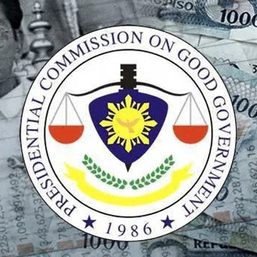
![[Newspoint] The lucky one](https://www.rappler.com/tachyon/2024/04/lucky-one-april-18-2024.jpg?resize=257%2C257&crop=536px%2C0px%2C1080px%2C1080px)
![[Just Saying] Marcos: A flat response, a missed opportunity](https://www.rappler.com/tachyon/2024/04/tl-marcos-flat-response-april-16-2024.jpg?resize=257%2C257&crop=277px%2C0px%2C720px%2C720px)
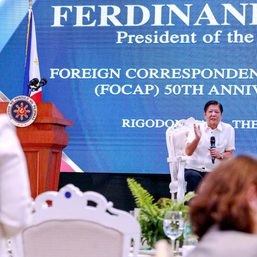
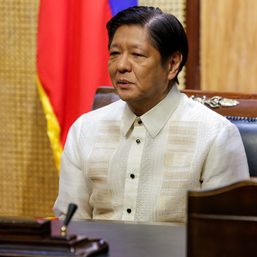
![[OPINION] ‘Some people need killing’](https://www.rappler.com/tachyon/2024/04/tl-some-people-need-killing-04172024.jpg?resize=257%2C257&crop_strategy=attention)
![[Judgment Call] Resisting mob mentality for warrantless arrests](https://www.rappler.com/tachyon/2024/04/judgement-call-mob-mentality.jpg?resize=257%2C257&crop=352px%2C0px%2C720px%2C720px)

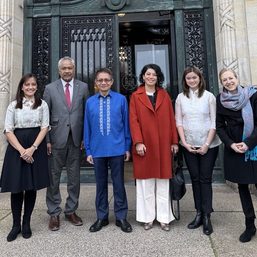
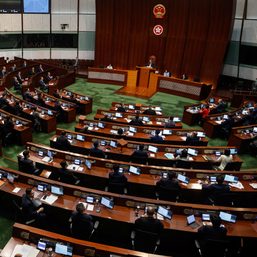
There are no comments yet. Add your comment to start the conversation.